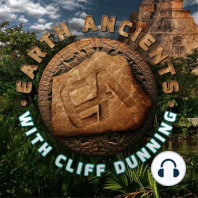96 min listen
Dr. Paulette Steeves: The Indigenous History of North America
FromEarth Ancients
ratings:
Length:
94 minutes
Released:
Apr 8, 2023
Format:
Podcast episode
Description
The Indigenous Paleolithic of the Western Hemisphere is a reclaimed history of the deep past of Indigenous people in North and South America during the Paleolithic. Paulette F. C. Steeves mines evidence from archaeology sites and Paleolithic environments, landscapes, and mammalian and human migrations to make the case that people have been in the Western Hemisphere not only just prior to Clovis sites (10,200 years ago) but for more than 60,000 years, and likely more than 100,000 years.Steeves discusses the political history of American anthropology to focus on why pre-Clovis sites have been dismissed by the field for nearly a century. She explores supporting evidence from genetics and linguistic anthropology regarding First Peoples and time frames of early migrations. Additionally, she highlights the work and struggles faced by a small yet vibrant group of American and European archaeologists who have excavated and reported on numerous pre-Clovis archaeology sites.In this first book on Paleolithic archaeology of the Americas written from an Indigenous perspective, The Indigenous Paleolithic of the Western Hemisphere includes Indigenous oral traditions, archaeological evidence, and a critical and decolonizing discussion of the development of archaeology in the Americas.The book is published by University of Nebraska Press. The audiobook is published by University Press Audiobooks.“This is an important and timely contribution to the field.” (Kisha Supernant, University of Alberta)“An act of healing that benefits both Indigenous people and academic scholarship.” (Randall H. McGuire, SUNY Binghamton University)“A timely analysis of the ethnocentric influences on past and present scientific inquiry and archaeological practice from the perspective of an Indigenous archaeologist.” (Kathleen Holen, director of the Center for American Paleolithic Research)Dr. Paulette Steeves. Ph.D. – (Cree- Metis) is an Indigenous archaeologist with a focus on the Pleistocene history of the Western Hemisphere. In her research, Steeves argues that Indigenous peoples were present in the Western Hemisphere as early as 100,000 years ago, and possibly much earlier. She has created a database of hundreds of archaeology sites in both North and South America that date from 250,000 to 12,000 years before present, which challenges the Clovis First dogma of a post 12,000 year before present initial migrations to the Americas.Steeves received her BA Honors Cum Laude in 2000 at the University of Arkansas at Fayetteville. In 2008 Dr. Steeves was awarded the Clifford D. Clark fellowship to attend graduate studies at Binghamton University in New York State and was awarded her Masters in Anthropology 2010, and Doctorate in Anthropology in 2015. During her doctoral studies, she worked with the Denver Museum of Nature and Science to carry out studies in the Great Plains on mammoth sites which contained evidence of human technology on the mammoth bone, thus showing that humans were present in Nebraska over 18,000 years ago. Dr. Steeves has taught Anthropology courses with a focus on Native American and First Nations histories and studies, and decolonization of academia and knowledge production at Binghamton University, Selkirk College Fort Peck Community College, the University of Massachusetts at Amherst, and Mount Allison University, she is currently an Associate professor in Sociology and Anthropology.
Released:
Apr 8, 2023
Format:
Podcast episode
Titles in the series (100)
William Donato: An Archaeologist Quest for Atlantis: William Michael Donato is an American archaeologist who holds an MA in anthropology and is a regular contributor to the Ancient American and Atlantis Rising magazines and is an advocate of a Bimini location for Atlantis. He was the founder of The... by Earth Ancients
